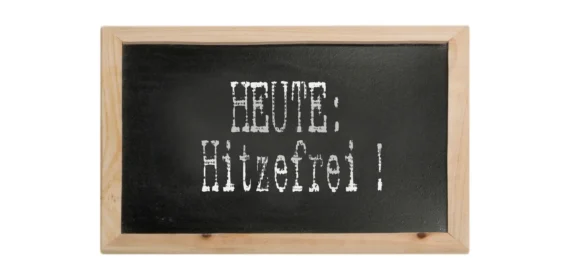Public communication by the press and investigative authorities
Media attention is essentially a given in the event of criminal investigations against responsible persons within the company or against the company itself.
Naturally, this also means that the press communicates with the public. But also investigating authorities participate in the public communication.
Whether through the press, or through statements and press conferences held by the investigating authorities: This communication often damages – first and foremost – the reputation of the company.. At the same time, business relationships and the value of a company can suffer as a result of “uninhibited” communication about compliance violations or criminal proceedings, causing immense (im)material damage to people and companies.
Action against unlawful communication
Communication in these situations can cross legally permissible boundaries and both the rights of individuals and corporate personal rights may also be violated.
Reacting to legal violations of this nature with appropriate “counter-communication” may be an effective option as a means of limiting damage. In these situations, professional crisis communication and media relations are essential.
Professional legal support for media law issues is equally important in many cases, as this opens up legal options to help calm the often overly heated communication situation. This is especially true when the press violates legal boundaries by unlawfully reporting on suspicions or when investigating authorities add fuel to the fire with unlawful public statements concerning ongoing investigations.
Legal options
In situations like these, media law action against unlawful public communication represents an efficient way of actively influencing destructive communication by the press and authorities by preventing unlawful communication.
In this context, legal support can
- rapidly achieve injunctive relief through means such as interim injunctions and also
- assert claims for rectification or counterstatements.
At the same time, legal support also enables companies to examine the economic and financial consequences of unlawful communication and to assert claims arising from culpable conduct.
This opens up questions of settling claims regarding
- official liability,
- rectifying consequences as well as
- compensation for damages, pain and suffering
out of court or in court.
Be prepared: establish a “crisis team” ahead of time
It is essential to be prepared before a communication crisis occurs as a consequence of criminal investigations against a company or responsible persons in connection with compliance violations.
For example, companies need to clearly define who is responsible for communicating any reactions to investigations and corresponding press coverage, how and when. Above all, companies need to be clear about who does not communicate. Companies also need to preventively clarify whether and how professional media law support can actively and forcefully influence the situation. That is why we recommend exploring the cooperation options with a specialized law firm in advance.
The combination of these two aspects often poses a major challenge for companies. Nevertheless, they need to make their preparations during “quiet times” by establishing clear guidelines governing classic crisis communication and the use of external media law support. Ideally, communicative and legal protection for a company’s reputation in crisis situations are coordinated and work hand in hand.
Summary of the key facts
- In the event of a communications crisis due to investigations by the public prosecutor’s office, professional crisis communication is essential.
- Legal action is often an effective means of supporting communication goals.
- Companies need to regard an investigation as a crisis scenario and consider their options in advance. This means clearly defining responsibilities, processes, etc. to enable them to (re)act efficiently.









